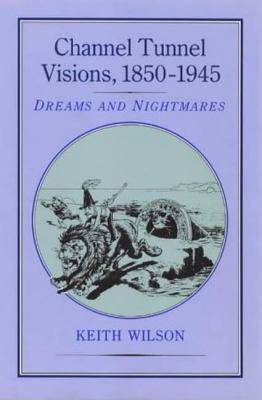
- Retrait gratuit dans votre magasin Club
- 7.000.000 titres dans notre catalogue
- Payer en toute sécurité
- Toujours un magasin près de chez vous
- Retrait gratuit dans votre magasin Club
- 7.000.0000 titres dans notre catalogue
- Payer en toute sécurité
- Toujours un magasin près de chez vous
Description
The idea of a Channel Tunnel has always aroused strong emotions in Britain. It has been supported by those wanting closer political, economic and cultural links with Europe but opposed by believers in Britain's island identity and overseas empire. In contrast, the French have been almost unanimously in favour. Channel Tunnel Vision 1850-1950 is an account of attempts over a century to build a link with France. Early schemes, some owing more to Heath-Robinson than to sound engineering practice, were succeeded by serious proposals based on scientific surveys of the sea-bed carried out in the 1860s. After describing the major entrepreneurs and their plans, Keith Wilson goes on to show the reactions of successive British Governments. On several occasions the decision on whether or not to go ahead was a very close-run thing. He quotes the views, which make remarkable reading, of Prime Ministers from Gladstone to Ramsay MacDonald; of Foreign Secretaries including Grey and Curzon; and of admirals and generals ranging from Fisher to Wolseley, French and Henry Wilson. Their fears of sabotage, invasion and a future political rift with France were set against hopes of economic advantage. They also saw an enhanced ability to respond quickly to future German aggression. How the existence of a Channel Tunnel would have affected the 1940 campaign is an intriguing speculation.
Spécifications
Parties prenantes
- Auteur(s) :
- Editeur:
Contenu
- Nombre de pages :
- 256
- Langue:
- Anglais
Caractéristiques
- EAN:
- 9781852851323
- Date de parution :
- 02-08-03
- Format:
- Livre relié
- Format numérique:
- Genaaid
- Dimensions :
- 163 mm x 240 mm
- Poids :
- 548 g

Les avis
Nous publions uniquement les avis qui respectent les conditions requises. Consultez nos conditions pour les avis.






